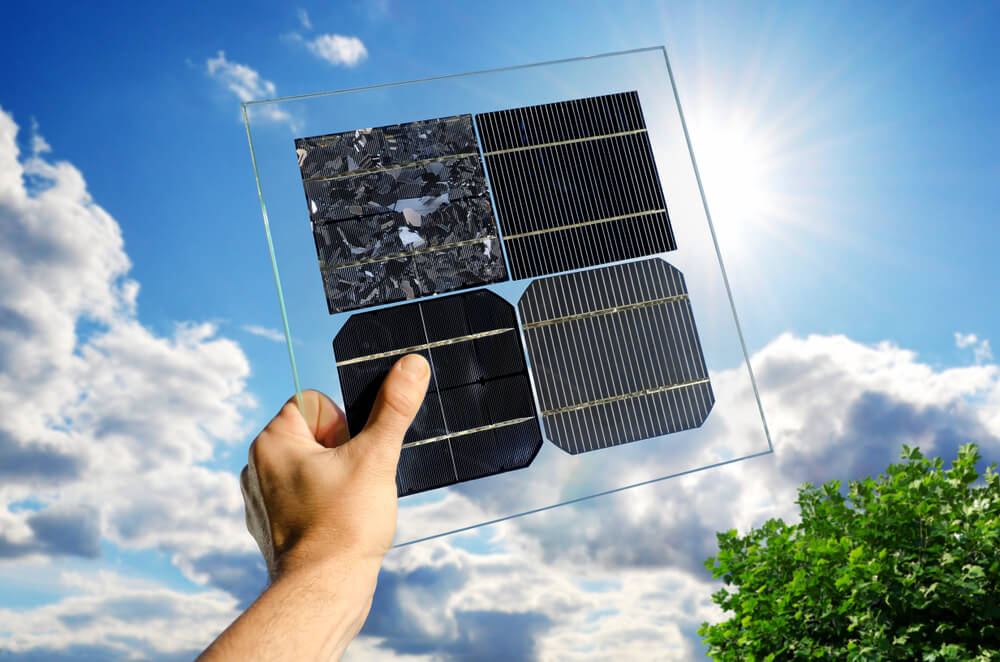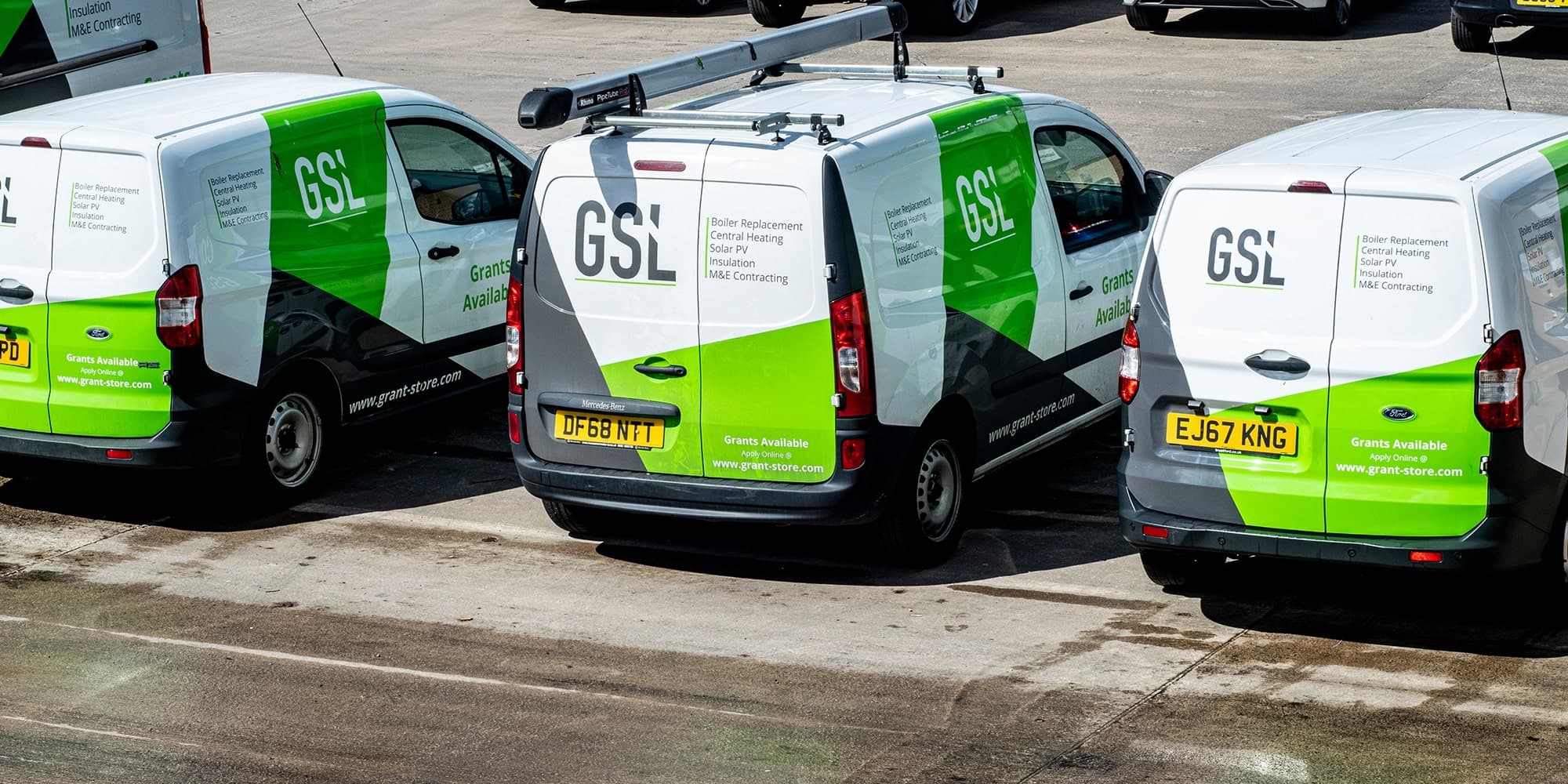July 2nd, 2024
How To Make the Most Out of ECO4 Funding
Written by: Site Editor
ECO4
"*" indicates required fields
With the world turning a conscious eye towards clean energy and sustainable living, solar energy has taken centre stage as a green and inexhaustible source of power. But how do these remarkable devices turn sunlight into electricity that we can use in our homes and businesses?
In this blog, we’ll unfold the magic behind solar panels, explore their benefits, and dive into the different types of systems available. Let’s get into it.
Solar panels are an essential source of clean, renewable energy. Solar panels are made up of photovoltaic cells, which are typically made from a semiconductor material such as silicon. When photons of sunlight interact with the semiconductor material, they knock electrons free from atoms. This creates an electric current and a voltage difference, which generates electricity.
Key components of a solar panel include:
Using solar panels offers a multitude of benefits, making it an attractive option for homeowners and businesses alike. One of the most significant advantages is the reduction in electricity bills. By reducing your reliance on the grid, you can save a substantial amount on your monthly electricity bills. With proper maintenance, solar panels can last 25-30 years, making them a long-term source of renewable energy.
In addition to saving money, solar panels also help lower carbon footprints. Unlike fossil fuels, solar energy is a clean and renewable source of energy. By utilising the power of the sun, you are reducing the demand for electricity generated from non-renewable sources. This contributes to a greener and more sustainable future.
Another advantage of solar panels is their year-round efficiency. While the amount of sunlight may vary depending on the time of year and geographical location, solar panels can still generate electricity even on cloudy or rainy days. This means that you can continue to benefit from solar energy regardless of the weather conditions.
Furthermore, solar panels offer independence from the grid. With a solar panel system in place, you become less reliant on the energy provided by the electrical grid. This not only gives you peace of mind in case of power outages but also allows you to gain control over your energy consumption.
Overall, the benefits of using solar panels are numerous. They not only help reduce electricity bills and save money but also contribute to a lower carbon footprint, provide year-round efficiency, and offer independence from the grid. By harnessing the power of the sun, you can embrace a cleaner and more sustainable energy solution for your home or business.

There are different types of solar cells used in solar panels, including monocrystalline cells, polycrystalline cells, and thin-film cells. While thin-film solar panels tend to be the cheapest option, monocrystalline and polycrystalline panels are more efficient and so can be the better choice.
Monocrystalline panels are a type of solar panel material that is made from a single crystal structure. One of the main advantages of monocrystalline panels is their efficiency. Due to their uniform and pure crystal structure, they have a higher conversion rate compared to other solar panel materials. This means that they can generate more electricity from the same amount of sunlight.
Another advantage of monocrystalline panels is their long lifespan. These cells are typically known to last 25-30 years, making them a durable option for solar panel systems.
However, there are some disadvantages to using monocrystalline panels . Firstly, they tend to be more expensive compared to other solar panel materials. The manufacturing process of creating a single crystal structure is more complex and costly.
Polycrystalline panels are another popular type of solar panel material, offering their own set of advantages and disadvantages.
One major advantage of polycrystalline panels is their lower cost compared to monocrystalline panels. The manufacturing process of polycrystalline cells involves pouring liquid silicon into a square mould, allowing for a simpler and more cost-effective production method. This makes polycrystalline cells a more affordable option for solar panel systems.
However, this cost advantage comes with a trade-off in efficiency. Polycrystalline panels have a slightly lower conversion rate compared to monocrystalline panels due to their less uniform crystal structure. This means, while they can last the same amount of time, they may generate slightly less electricity from the same amount of sunlight.
Solar systems are not just a tool for reducing utility bills or becoming environmentally friendly; they’re an investment in the future of our planet. Whether you opt for the high-efficiency monocrystalline panels or the cost-effective polycrystalline option, the transition to solar energy is a bright choice.
At Grant Store, we specialise in turning daylight into sustainable success stories. We believe that with the right information, anyone can benefit from a solar energy installation. Our mission is to make this technology accessible and understandable, so you can make the best choice for your energy needs. We can also help you reduce costs further by assisting with applications for available solar panel grants.
For residents in Wigan, visit our Solar Installations Wigan page for more information on how we can assist you in making the switch to renewable energy.
Find out how much you could potentially save by getting in touch today.
July 2nd, 2024
How To Make the Most Out of ECO4 Funding
Written by: Site Editor
ECO4
June 11th, 2024
Exploring Energy Grants for Pensioners: A Guide to Lowering Your Energy Costs
Written by: Mk Hk
News
June 11th, 2024
Unlocking the Perfect Pair: Solar Panels and Air Source Heat Pumps
Written by: Mk Hk
News
June 11th, 2024
Your Guide to Understanding Energy Performance Certificates (EPCs)
Written by: Mk Hk
News
June 11th, 2024
How to Save on Energy Bills with Universal Credit: A Simple Guide
Written by: Mk Hk
News
June 1st, 2024
Who Qualifies for a Boiler Grant in the UK?
Written by: Mk Hk
News
May 22nd, 2024
Is the UK Government Planning to Ban Gas Energy?
Written by: Mk Hk
News
April 25th, 2024
Your Complete Guide To Off-Gas Property Grants in the UK
Written by: Mk Hk
News
April 24th, 2024
Electric Storage Heaters Buyer’s Guide: Cut Your Bills And Save Some Cash
Written by: Mk Hk
News
April 23rd, 2024
The Energy Crisis Support Scheme: How It Can Help You
Written by: Mk Hk
News
April 23rd, 2024
How To Improve Your Home’s EPC Rating: A Guide to Boosting Efficiency and Reducing Costs
Written by: Mk Hk
News
April 23rd, 2024
The ECO Scheme Explained: A Guide to Greener Living and Lower Bills
Written by: Mk Hk
News
April 23rd, 2024
How to apply for the ECO4 Grant: Everything you need to know
Written by: Mk Hk
News
April 18th, 2024
The Complete Guide to Heat Pumps: Benefits, Costs, Savings, and Efficiency
Written by: Mk Hk
News
March 13th, 2024
What size solar PV system do I need?
Written by: Mk Hk
News
February 27th, 2024
Schemes and Grants To Reduce Your Energy Bills
Written by: Mk Hk
News
November 24th, 2023
How Many Solar Panels Do I Need?
Written by: admin
News
November 23rd, 2023
How Much Money Do Solar Panels Save?
Written by: admin
News
November 22nd, 2023
How Are Solar Panels Made?
Written by: admin
News
November 22nd, 2023
Do You Need Planning Permission For Solar Panels?
Written by: admin
News
November 22nd, 2023
How Much Do Solar Panels Cost?
Written by: admin
News
November 22nd, 2023
How Do Solar Panels Work?
Written by: admin
News
November 20th, 2023
Smart Export Guarantee Rates 2023
Written by: admin
News
November 20th, 2023
Can I Add a Battery to my Solar System?
Written by: admin
News
November 20th, 2023
How Do You Store Solar Energy?
Written by: admin
News
October 3rd, 2023
Solar panels: are they worth the cost?
Written by: admin
News
September 19th, 2023
How efficient are solar panels?
Written by: admin
News
September 19th, 2023
Do solar panels boost home value?
Written by: admin
News
September 19th, 2023
Solar panels: the pros and cons explained
Written by: admin
News
September 19th, 2023
Energy Costs: Schemes and grants that save
Written by: admin
News
Not sure which energy-saving solution is right for your home? Or do you have questions about grant eligibility? Our team has the answers. Give us a call and we'll help you figure everything out.
Call us now on:
01942 918 844
"*" indicates required fields
